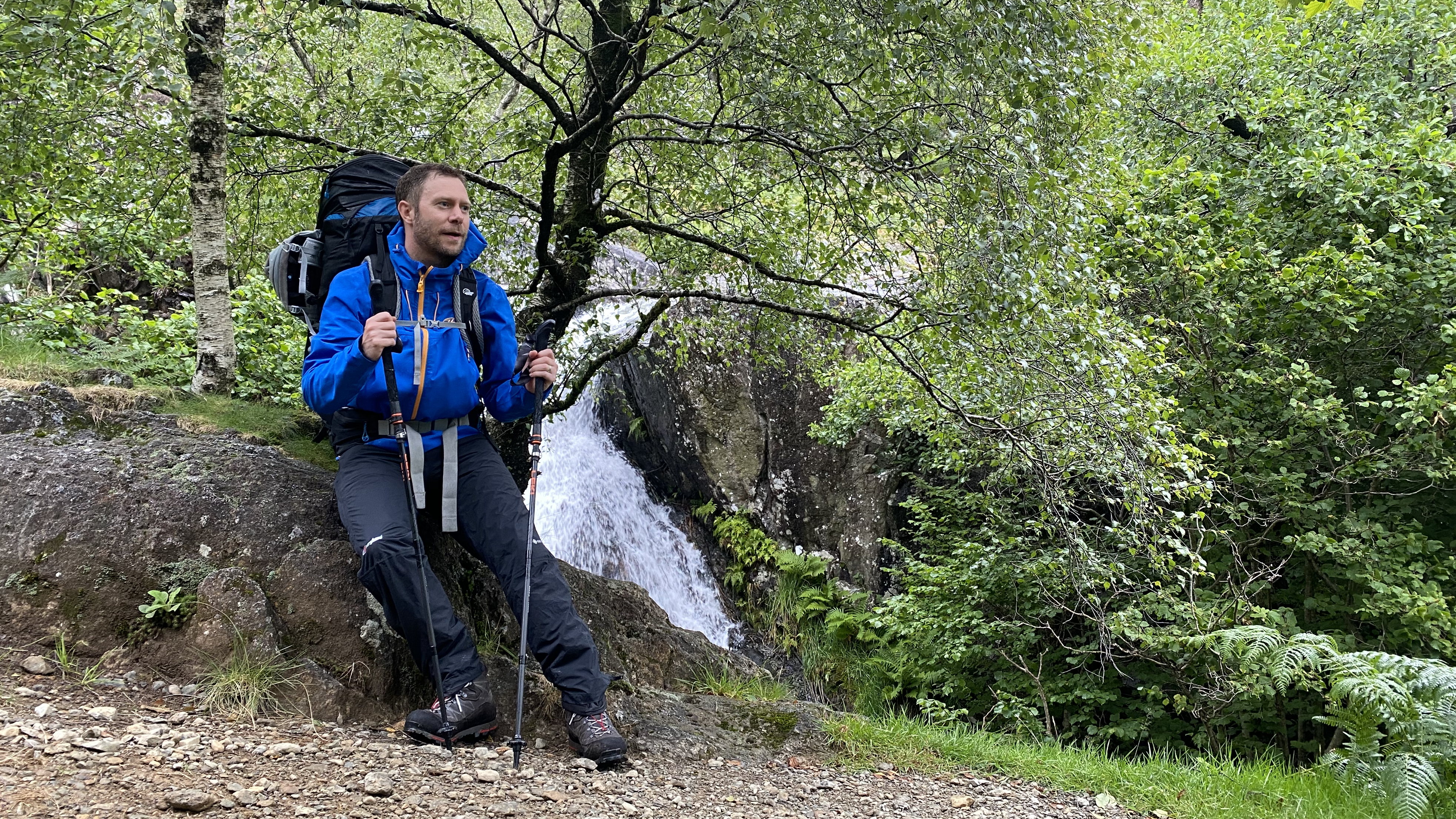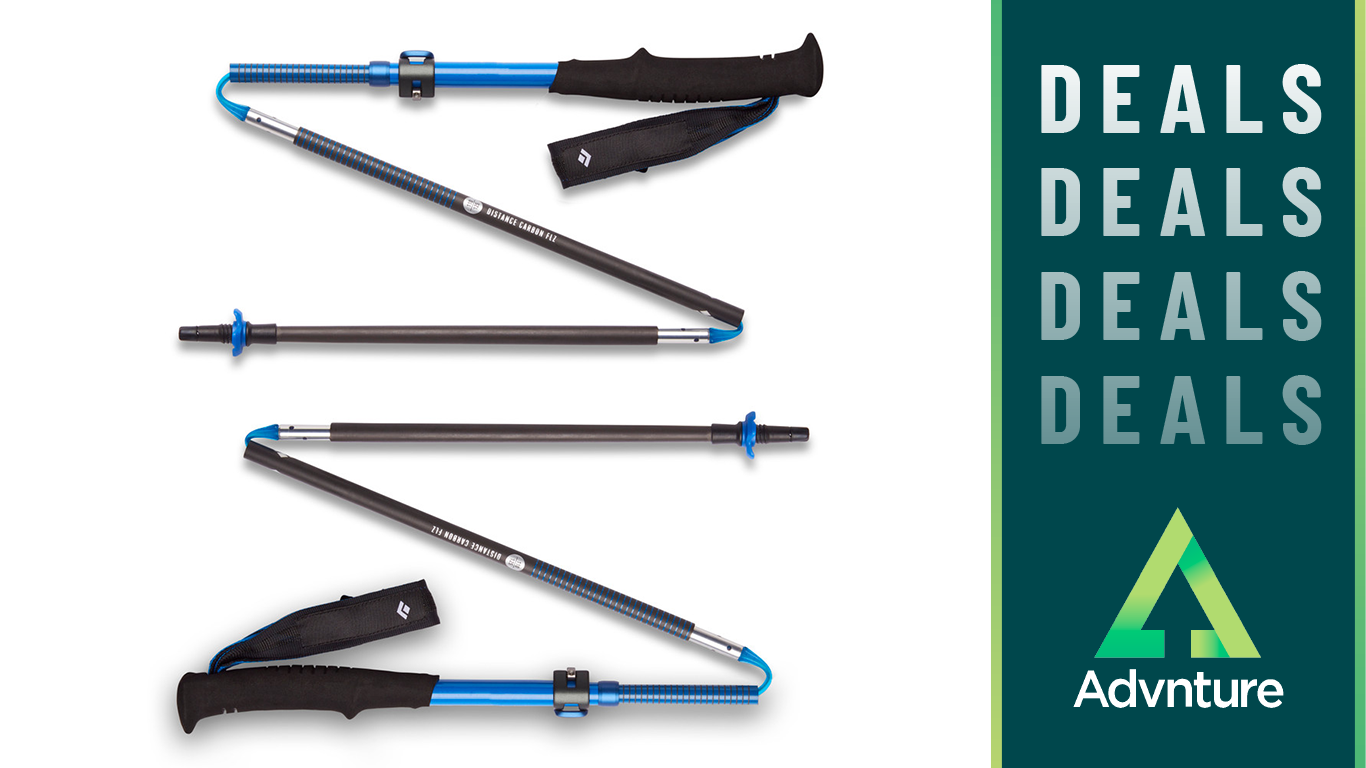Advnture Verdict
A quality lightweight trekking pole with an innovative folding design, the Leki Makalu FX Carbon is comfortable to wield, easy to store and sturdy enough for plenty of abuse on the backcountry trails. It’s a dedicated trekking pole, so lighter choices exist for runners, while some may prefer the durability of an aluminium option. However, if you don’t mind the price, the Makalu FX Carbon is a great option for hikers.
Pros
- +
Innovative folding design
- +
Packs down small into a 40cm long bag
- +
Lightweight (though lighter options exist)
- +
Grippy, ergonomic handles with adjustable straps
- +
Handy speed locking system for height adjustment
Cons
- -
Expensive compared to most
- -
Length doesn’t extend as long as some
- -
No anti-shock on this model
- -
Likely to be less durable than aluminium options
You can trust Advnture
Leki is to trekking poles what Hoover is to vacuum cleaners and Coca Cola is to… cola. This is in that many people don’t refer to trekking poles as poles, but as ‘Lekis’. They are very much synonymous with these highly useful pieces of hiking kit.
I once asked a Leki employee how they have managed to maintain such a firm grip on the trekking pole market. The answer was simple. Unlike other brands, Leki focus on poles and poles alone. Well, that is aside from a few headbands and a drinks belt, but you get the point: 99% of their products are poles. That’s why they continue to create many of the best trekking poles around today.
The Makalu FX Carbon pole (available direct from Leki) is the premium option within the company's trekking range, and is named after the Himalayan giant Makalu, the fifth highest peak in the world. It’s almost double the price of the standard Makalu FX, so I was excited to see how it fared when put to the test in the hills and mountains and to discover what sets it apart from much of the competition.
Leki Makalu FX Carbon: first impressions
I previously tested and got a lot of use out of the Leki Cross Trail Lite Carbon poles, which are lighter, more suited to speedy pursuits and less expensive than the Makalu FX Carbons, which are dedicated trekking poles. However, the Makalu FX Carbons felt just about as nimble the first time I grasped their Aergon Air grip handles.
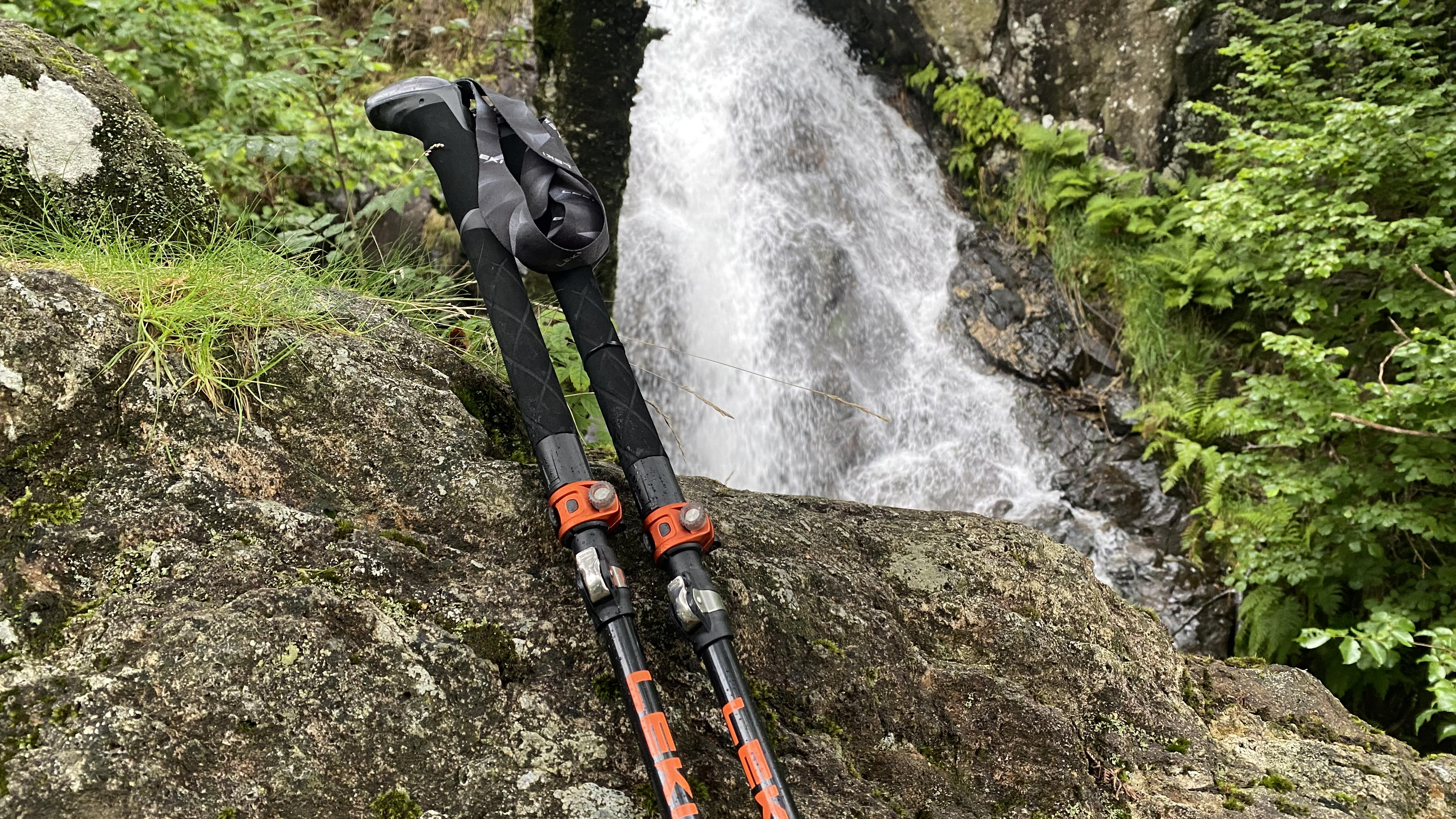
The main difference between the two – and indeed the main feature that sets the FX Carbons aside from the standard Makalus – is the innovative ELD folding system. This allows the poles to be assembled and disassembled with the push of a button. The pole segments are connected by an interior cord, which means they can be fully separated and folded up in a tight S-shape.
When it came to assembly, I simply had to drop the segments and pull until I heard a click, indicating that the segments were locked together. Disassembly is even easier, with a push of the button I was able to liberate the segments from each other and fold it all back into a tight package, ready for transportation in its 40cm-long pole bag.
There’s no doubt that this ELD folding system makes the Makalu FX Carbon feel more advanced than standard telescopic poles, as well as being more packable.
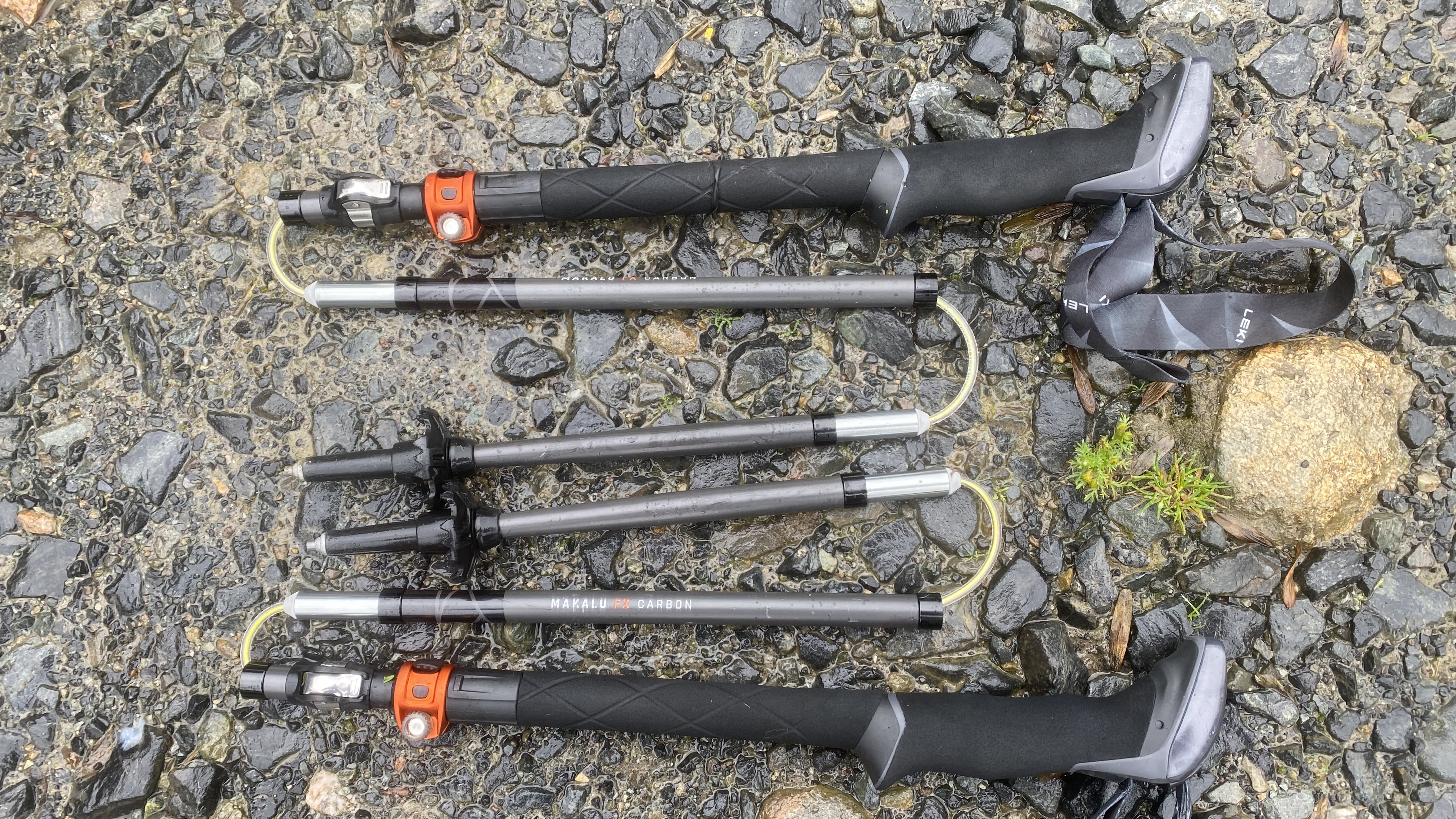
List price (per pair): $229.95 (US) / £195.00 (UK) / €195.00 (EU)
Weight (per pair): 486g / 17.1oz
Packed-down length: 40cm
Operational length: 100-130cm
Compatibility: Hiking, trekking, backpacking
Features
As well as the ELD system, the Makalu FX Carbon has a range of other eye-catching features. The Aergon Air grip is designed to be as ergonomic and lightweight as possible. It’s designed with mountain trekking top of mind and features a rubberized grip head for maximum traction when bounding downhill. The grip handle is complimented by Leki’s Lock Security Strap 4.0, which is fully adjustable, allowing the user to find a tight and comfortable grip.
Down the other end of the pole are Trekking 2.0 baskets for deep mud, sand or adventures above the snow line. These can be switched for any other Leki basket, should you wish to change the style for something more specialized to the environment ahead of you. As the name suggests, each shaft is made from lightweight, yet strong carbon fiber.
When the pole segments are locked into place, a speed locking clamp is used to adjust the height of the pole from a possible 100cm to 130cm. Measurements on the shaft allow the user to quickly identify their desired height.

This is the standard Makalu FX Carbon. However, there is the pricier AS (anti-shock) version, which comes with a DSS damping system that absorbs impacts to further remove stress on joints and ligaments. However, as well as being more expensive, the AS version is also heavier, at 534g (18.8oz). So, which model is best for you all depends what your priorities are.
Leki Makalu FX Carbon: on the trails
I put the Makalu FX Carbons to the test while lugging my daughter around on hillwalks in the excellent Osprey Poco Plus and on solo wild camping expeditions in the mountains of the English Lake District. When carrying heavy loads like this, they were an absolute godsend, supporting my efforts and enabling me to go much further with relative ease compared to the struggle I’d have faced without them.
I didn’t notice any issues with the grip during the test, even in wet weather. Decent outdoor gear is often the gear you don’t notice, so this can only be a good thing. The adjustable wrist strap is a more stripped back than the mesh strap on the Cross Trail Lite Carbon, which I quite liked as it meant there wasn’t any faff getting my hand into it correctly.
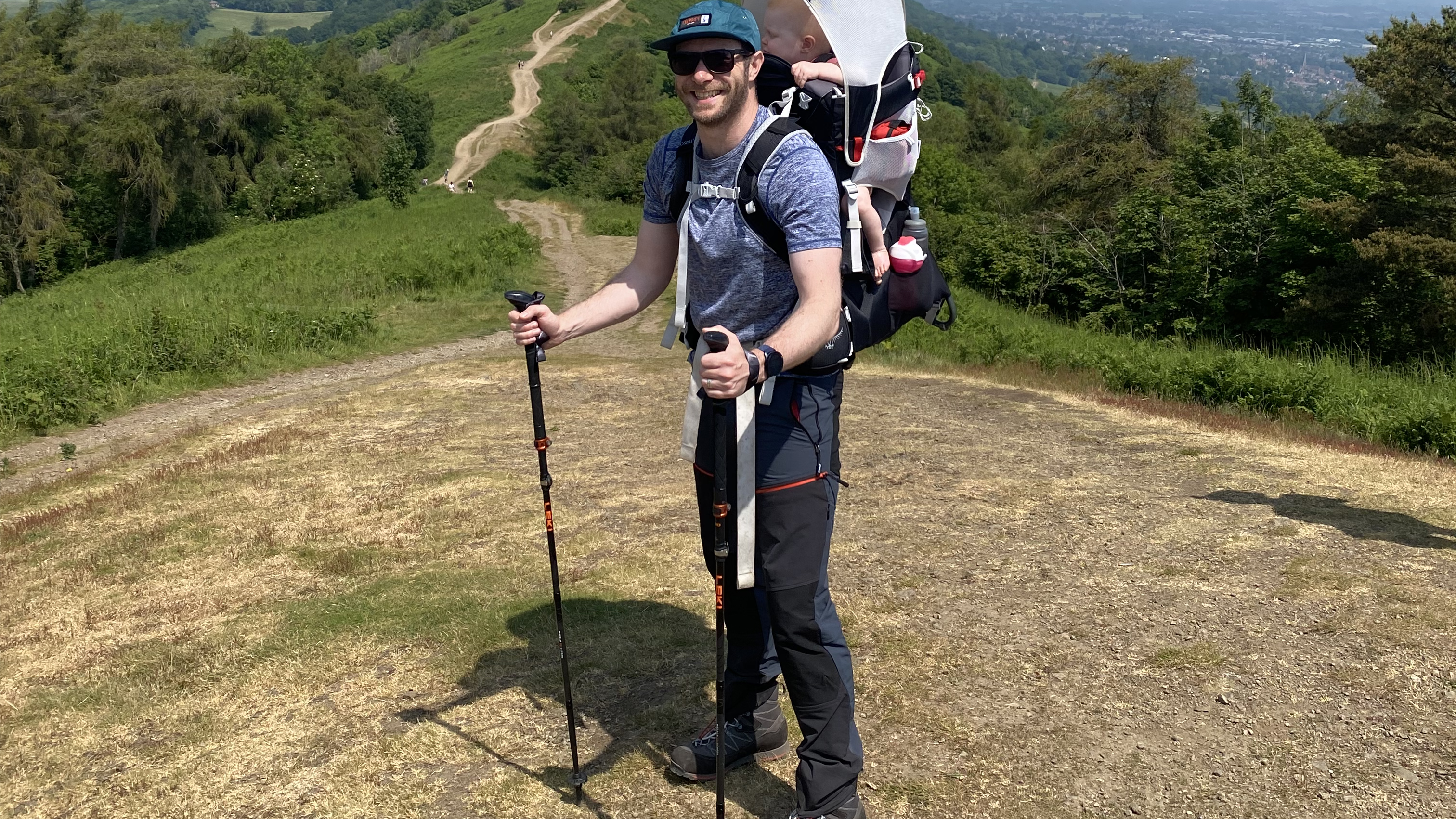
The speed and ease of assembly is a real boon. The way the ELD folding system locks the segments into place, plus the fact that there’s just one clamp to think about for length adjustment, meant that I spent minimal time getting the poles setup, giving me more time to enjoy the trails. When I needed to extend the length of the pole for downhill sections, lifting the clamp was easy and the height markings on the shaft helped me to quickly reset the length afterwards.
When wild camping, backpack space is always at a premium. Of course, I had the option of leaving the poles fully extended and attaching them to the outside of my pack but the Makalu FX Carbons pack down so small, it makes sense to slip them into the main body of the pack when not in use. Once in their pole bag, the package is also small enough for a backpack’s side or front mesh pocket.
I’m slightly below average height for a bloke, at around 5 foot 8 inches. The Makalu FX Carbon extends from 100 to 130 cm, which isn’t as large a range as with some poles but was fine for me. However, if you’re shorter than 5 feet or taller than 6 feet, you’d probably need to look for another option.
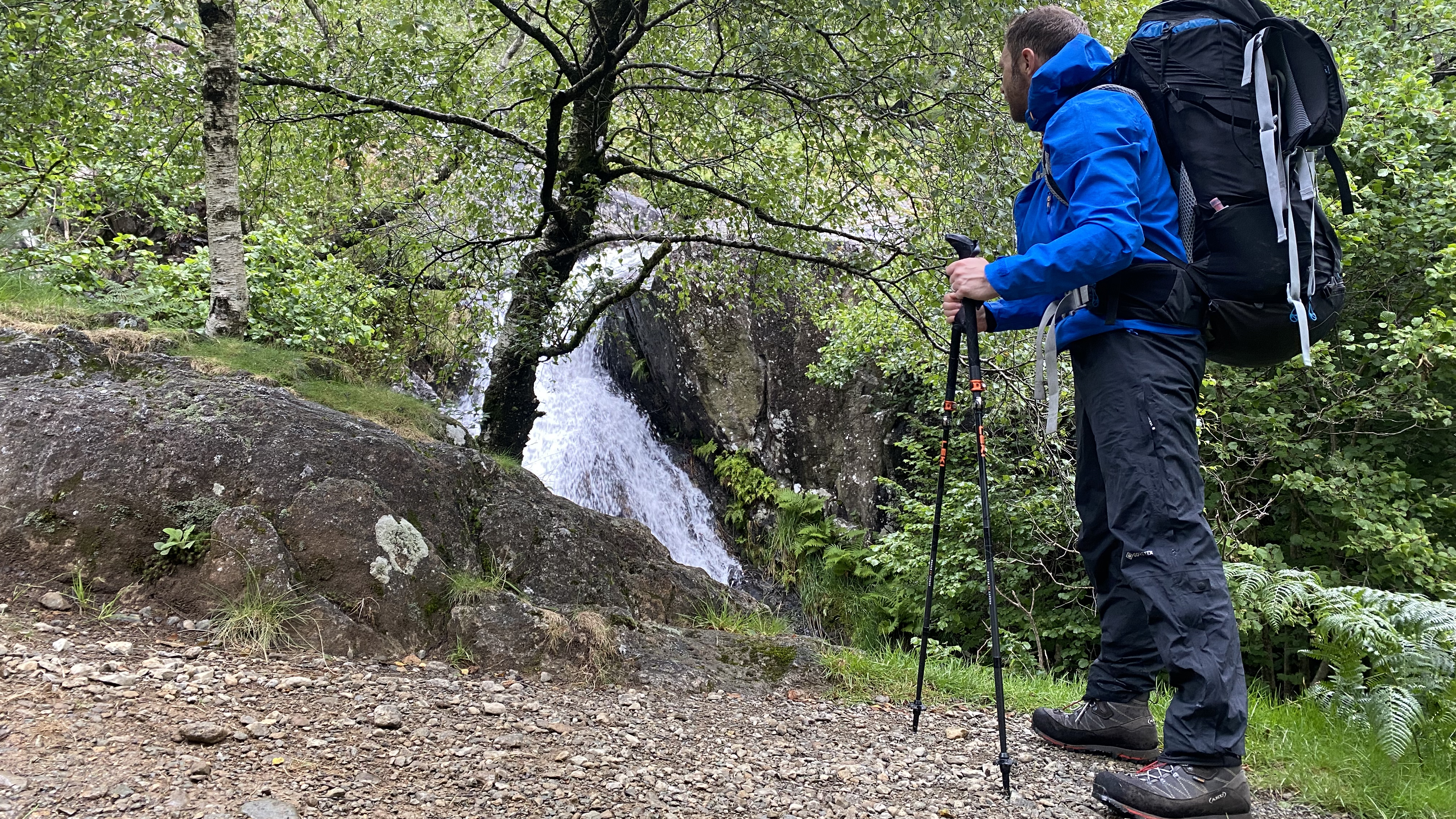
The uses of a good pair of poles go beyond load bearing and support. During my Lakeland wild camps, I had to negotiate several streams that were in spate due to heavy rainfall. This often involved crossing fast flowing water over semi-submerged rocks, all while carrying a heavy pack ladened with my one-person tent and the rest of my camping equipment.
I was able to plant the Makalu FX Carbons into the rocks beneath the surface to provide stability, as I gingerly made progress from one foot placement to another. It’s moments like these that make quality poles even more essential for expedition life, and their packability and low weight makes them a good option for stashing in a daypack on fast and light summer speed hikes, ready to whip out in these kinds of scenarios.
After a few months of use, it’s too early to say how the Makalu FX Carbon poles will hold up over many years, especially compared to aluminium poles, which are generally more durable than carbon products, albeit usually heavier. Where the Makalus are concerned though, it's a case of so far, so good.
Alex is a freelance adventure writer and mountain leader with an insatiable passion for the mountains. A Cumbrian born and bred, his native English Lake District has a special place in his heart, though he is at least equally happy in North Wales, the Scottish Highlands or the European Alps. Through his hiking, mountaineering, climbing and trail running adventures, Alex aims to inspire others to get outdoors. He's the former President of the London Mountaineering Club, is training to become a winter mountain leader, looking to finally finish bagging all the Wainwright fells of the Lake District and is always keen to head to the 4,000-meter peaks of the Alps. www.alexfoxfield.com
